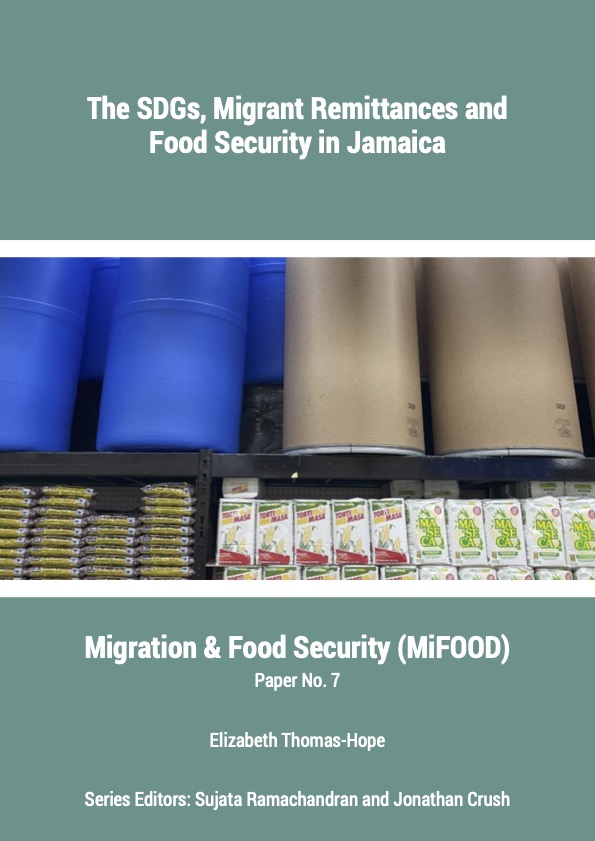This paper raises questions about the implications of migration for inclusive social development in Kingston, Jamaica. This is based on an assessment of the relationship between remittances and food security at the household level. Emphasis is placed on whether remittances have made a difference in reducing the food insecurity associated with poverty and thus could contribute to inclusive social development. A city-wide survey of Kingston based on a sample of households in communities spanning different socioeconomic sectors was conducted to provide the data. Three indicators were used to measure food security/insecurity. Since there were the highest levels of food insecurity among the poorest households, the correlations between remittance receipt and household food security of the poor were measured. Although there was no evidence of a trend of migrant remittances that promote food security to the extent that they would contribute to inclusive social development, remittances in cash and food were of considerable importance in mitigating the consequences of poverty by improving the levels of food insecurity existing among the urban poor.

